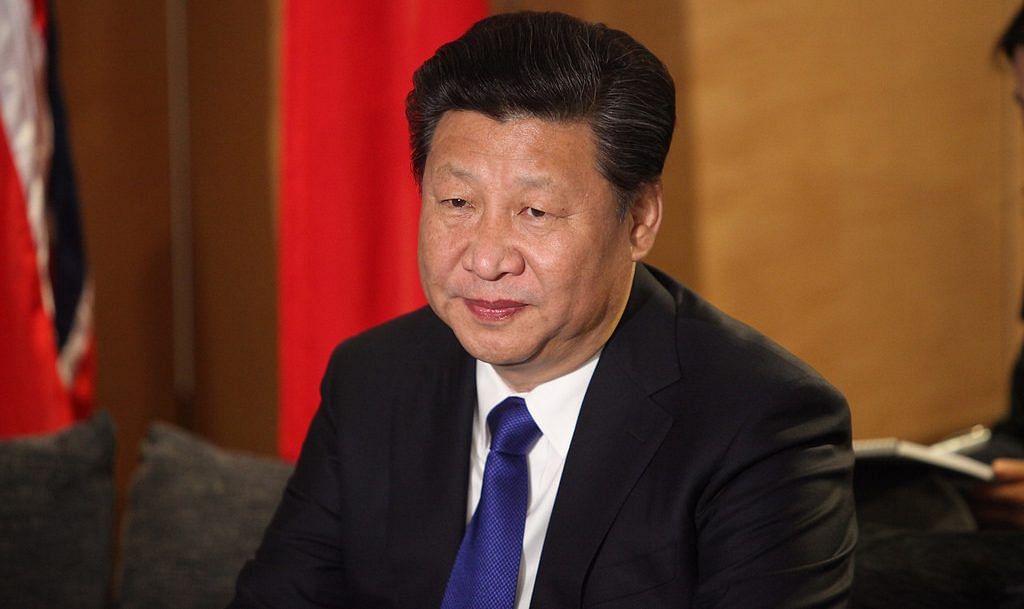New Delhi: The Belt and Road Forum may have ended on an amicable note in Beijing, but trouble seems to be brewing over the trillion-dollar infrastructure plan in India’s neighbourhood.
Pakistan, Sri Lanka and Nepal are all taking a cautious approach now towards some of the projects that they had initially signed on for under China’s Belt and Road Initiative (BRI) framework.
Pakistan, which has been at the forefront of BRI due to the China-Pakistan Economic Corridor (CPEC), is now looking at a much trimmed-down version. Islamabad has already walked out of the $14 billion Diamer-Bhasha dam project that was part of the CPEC, citing stringent monetary conditions imposed by Beijing.
Since it was inaugurated in 2017, the BRI has come under scathing criticism from across the world, including the participating countries, due to lack of financial authority and weak environmental standards.
“There are several reasons why these countries, which are in our immediate neighbourhood and which had shown interest initially, are now taking a cautious approach. This is why this time President Xi had taken a more inclusive approach towards BRI,” said China expert Srikanth Kondapalli, who attended the summit this year in Beijing.
“Lack of transparency in loan repayment terms, difficulties in accessing finance and poor environmental standards are all making all these countries re-think their strategy,” added Kondapalli, professor of Chinese Studies at the Jawaharlal Nehru University.
The joint communique that was issued post the conclusion of the forum stressed on the need to provide “diversified and sustainable financial supports for projects”.
Also read: A shorter Belt & Road by China will be even more dangerous
Friction with Pakistan
The latest three-day forum, which concluded Saturday, was attended by leaders from 37 countries. According to Chinese President Xi Jinping, deals worth $64 billion were signed.
Pakistan Prime Minister Imran Khan attended the forum this year, but not all seemed well as China was unable to convince Pakistan to revive the Diamer-Bhasha project.
In an unusual move, the deputy chief of mission at the Chinese embassy in Pakistan, Lijian Zhao, tweeted an editorial Monday criticising Khan’s government.
“Unless the country’s ministries, departments and institutions improve their performance, cooperation by China alone will do no miracles. Mr Khan’s invitation to foreign investors will not produce results if they continue to face problems in doing business,” stated the editorial in Pakistan Today, a leading national daily.
The unnamed editorial also stated that some of the measures taken by Khan’s Pakistan Tehreek-e-Insaf government on climate issues and poverty eradication need to be “more realistic” and “more effective”.
Sri Lanka missing in action
Sri Lanka, another important partner in the BRI, refused to attend the forum this year. It had participated in the inaugural ceremony that took place in Beijing in 2017.
While Sri Lanka said the reason for staying away was last week’s terror attacks in Colombo, Negombo and Batticaloa, the reality is that the country ‘boycotted’ the meet due to its experience in the commercially-failed Hambantota Port project, diplomatic sources told ThePrint.
In December 2017, Sri Lanka sold 70 per cent of its stake in the port to a Chinese state-owned firm on a 99-year lease, to repay the debt it owed Beijing.
Also read: What China’s Belt and Road Initiative is, and why India gave it a miss again
The case of Nepal
Meanwhile, Nepal is still dilly-dallying on signing an agreement worth $56 billion to establish a Trans-Himalayan Multi-dimensional Connectivity Network under the BRI, which also includes a cross-border railway.
The MoU was signed in June 2018 and it was expected then that the agreement will be signed during the second Belt and Road Forum — that just concluded — which did not happen.
While both sides had signed an MoU on the project, Prime Minister K.P. Sharma Oli’s government is apprehensive of signing the commercial agreement because of concerns over the financing of the project and environmental issues in the Himalayan region.
At the Belt and Road Forum Saturday, Nepal President Bidhya Devi Bhandari sought to draw attention to the impact of climate change in Nepal.
“The clock of caution is ticking louder when it comes to climate change,” she said. “Unfortunately, countries like Nepal are bearing the brunt of climate change despite their negligible emissions.”
